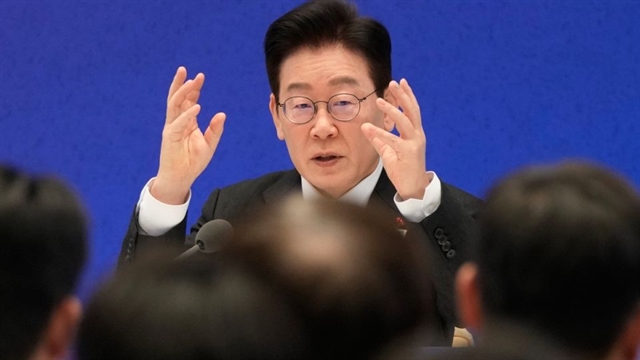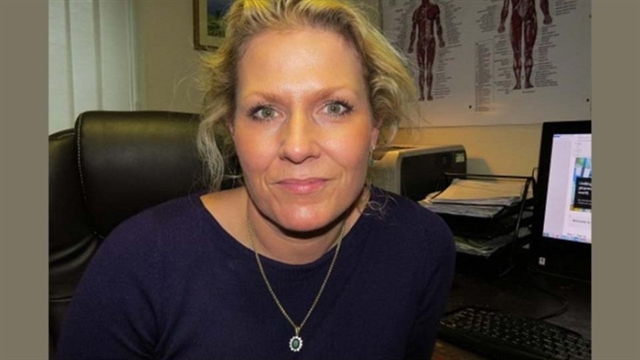 World
World


|
| Director of GenderGP Helen Webberley had her medical licence revoked in July 2024. PHOTO: GENDER GP/FACEBOOK/THE STRAITS TIMES |
SINGAPORE – GenderGP, a British business registered in Singapore that provides teleconsultation and puberty blockers, was warned by the Ministry of Health (MOH) to stop the unlicensed provision of outpatient medical services to Singapore-based users.
Puberty blockers are used to stop the body from making sex hormones and delay the changes of puberty in transgender and gender-diverse people.
In an e-mail reply to questions by The Straits Times in April, MOH said on Dec 4 that as GenderGP’s telehealth services are not licensed under the Healthcare Services Act 2020 (HCSA), it is not allowed to provide healthcare services in Singapore.
MOH found that GenderGP’s doctors – based outside Singapore and not registered for practice here – had provided teleconsultation and issued a prescription to one person in Singapore.
The ministry issued a letter of stern warning to GenderGP on Oct 22 to stop the unlicensed provision of outpatient medical services from overseas to Singapore-based users.
Failure to comply could mean a fine of up to $100,000, a jail term of up to 24 months, or both.
MOH said repeat offenders can be liable on conviction to a fine of up to $200,000 or a jail term of not exceeding 24 months, or both.
It also said that the director of GenderGP, Dr Helen Webberley, is not a registered medical practitioner with the Singapore Medical Council (SMC) and, therefore, cannot practise in Singapore.
In July, Dr Webberley, 55, lost her licence after a decision by British medical regulator General Medical Council (GMC).
MOH said: “Foreign doctors applying for medical registration in Singapore must be in good standing with the jurisdiction where they were registered and practise. They must arrange for a Certificate of Good Standing to be sent to SMC directly by the professional authority in that jurisdiction before their application for a practice certificate will be processed.
“Registered medical practitioners must inform the SMC if they are subject to disciplinary inquiry by professional authorities in other jurisdictions,” it said.
It is an offence under the Medical Registration Act 1997 (MRA) for a person to practise medicine unless he or she is registered under the MRA and has a valid practising certificate.
ST found out from the Accounting and Corporate Regulatory Authority in April that GenderGP was registered under the name Helen Webberley as a company with an office located at 160 Robinson Road.
This was after being clued in by a report in British newspaper The Daily Mail on April 12 which said that Dr Webberley’s business, which boasted of helping anyone “however old they are”, was registered in Singapore.
It had advertised its £270 (S$460) puberty blocking injections online, despite campaigners calling for an urgent crackdown on such “cowboy clinics”, said the report.
The report also stated that children could no longer get the drugs on the National Health Service after a landmark ruling in March, which meant they would have to go private to get them.
When approached by ST, a GMC spokesperson said on April 30 that sanctions on a doctor’s registration are applicable only in Britain and “it is for individual regulators in other countries to determine whether the action taken in the UK has an impact on a practitioner’s registration overseas”.
“When a doctor receives a fitness to practise sanction which restricts their registration in the UK, we will notify any other regulator that we know they are registered with, or the regulator of a country that we know they have a connection with. This connection could be where the doctor qualified or where their address is located, based on our records,” she said.
“We will also provide information, on request, to overseas regulators through a Certificate of Current Professional Standing. This confirms whether the doctor is entitled to practise medicine and whether they have been suspended, disqualified or prohibited.”
ST tried to reach Dr Webberley through the GenderGP website in June but she did not respond.
Dr Webberley lost her licence in July following a decision by GMC after it emerged that she did not comply with a legal obligation to renew her licence. However, the decision does not stop her from leading GenderGP.
GenderGP marketed itself as providing “fast, easy, and compassionate gender-affirming care”, charging hundreds of pounds for access to puberty blockers.
The firm came under fire in the British High Court earlier in 2024 after giving a “dangerously high” amount of hormones to a 16-year-old – an accusation Dr Webberley slammed as “untrue”.
As GenderGP’s telehealth services are not licensed under the HCSA in Singapore, consumers are strongly advised against using its services, as there is no assurance that GenderGP’s services are safe or effective.
GenderGP’s prescriptions by doctors based outside Singapore are also not recognised here.
Patients in Singapore seeking medical consultation and treatments should consult medical practitioners registered with SMC, to ensure that they receive safe and quality care.
It is also clinically unsafe and inappropriate for people in Singapore to seek telehealth services from GenderGP, without any prior medical examination, clinical evaluation or blood tests, said MOH.
MOH has referred the case to the Infocomm Media Development Authority, which has since disabled access to the GenderGP websites for users in Singapore due to public health risk. THE STRAIT TIMES/ANN